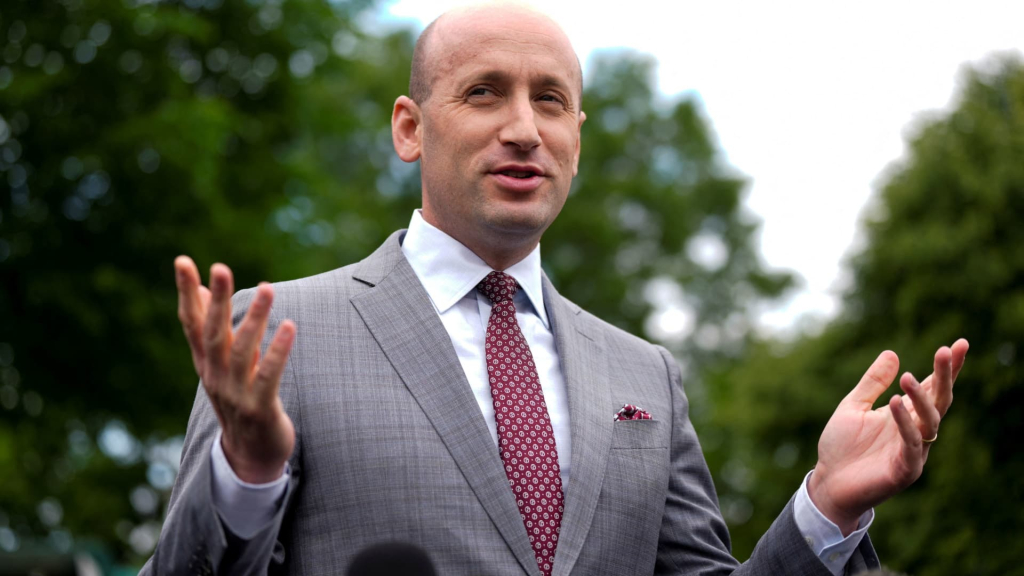Stephen Miller, the White House deputy chief of staff for policy, announced on Friday that the Trump administration is “actively looking at” the possibility of suspending the writ of habeas corpus, a fundamental legal right that allows individuals to contest the legality of their detention by the government.
Miller’s remarks followed a question from a reporter regarding President Donald Trump’s consideration of suspending the writ to address issues related to illegal immigration into the United States.
When queried about the timing of such a potential suspension, Miller stated: “The Constitution is clear, and that, of course, is the supreme law of the land, that the privilege of the writ of habeas corpus can be suspended in time of invasion.”
“So, I would say that’s an option we’re actively looking at,” he added.
According to Miller, the President’s decision on this matter hinges on whether courts take the appropriate actions. He suggested that “the right thing” would be for judges to refrain from obstructing the administration’s deportation efforts concerning undocumented immigrants invoking habeas corpus.
Historically, the writ of habeas corpus has only been suspended four times since the ratification of the U.S. Constitution, with Congress having authorized the action in all but one instance.
The concept of habeas corpus traces its roots to English common law. A clause from the Magna Carta, crafted in the early 13th century, states, “No man shall be arrested or imprisoned…except by the lawful judgment of his peers and by the law of the land.”
Article 1, Section 9 of the U.S. Constitution stipulates, “The Privilege of the Writ of Habeas Corpus shall not be suspended, unless when in Cases of Rebellion or Invasion the public Safety may require it.”
Miller’s reference to “invasion” aligns with the administration’s view that the current influx of undocumented migrants constitutes an invasion.
The administration has similarly asserted that a national emergency exists due to the surge of opioid fentanyl entering the U.S., which it claims justifies the implementation of elevated tariffs on China, Canada, and Mexico without prior Congressional approval.
A number of pending civil suits contesting the Trump administration’s deportation practices are grounded in habeas corpus claims, including a case initiated by Georgetown University scholar Dr. Badar Khan regarding the constitutionality of his arrest and detention.
The administration has expressed frustration with judicial orders that have blocked efforts to expedite the deportation of immigrants, including those identified as gang members.
Miller asserted that the Immigration and Nationality Act had removed federal courts’ jurisdiction over immigration matters.
“The courts aren’t just at war with the executive branch, the courts are at war, these radical rogue judges, with the legislative branch as well,” he remarked.
“So all of that will inform the choices the president ultimately makes.”
Despite this, Supreme Court Justice Amy Coney Barrett, in a co-authored piece with attorney Neal Katyal for the National Constitution Center, pointed out that the provision concerning the suspension of habeas corpus does not clarify which governmental branch holds the authority to enact such a suspension.
“But most agree that only Congress can do it,” the authors noted in the essay.
Barrett and Katyal cited President Abraham Lincoln’s controversial decision to suspend the writ during the Civil War, a move that was ultimately legitimized by legislation permitting such suspension.
They highlighted that on all other occasions, the executive branch acted only after gaining Congressional authorization, noting the four historical instances of habeas corpus suspension since the Constitution’s ratification: during the Civil War, in specific South Carolina counties during Reconstruction, in parts of the Philippines during a 1905 insurrection, and in Hawaii after the Pearl Harbor attack.


























